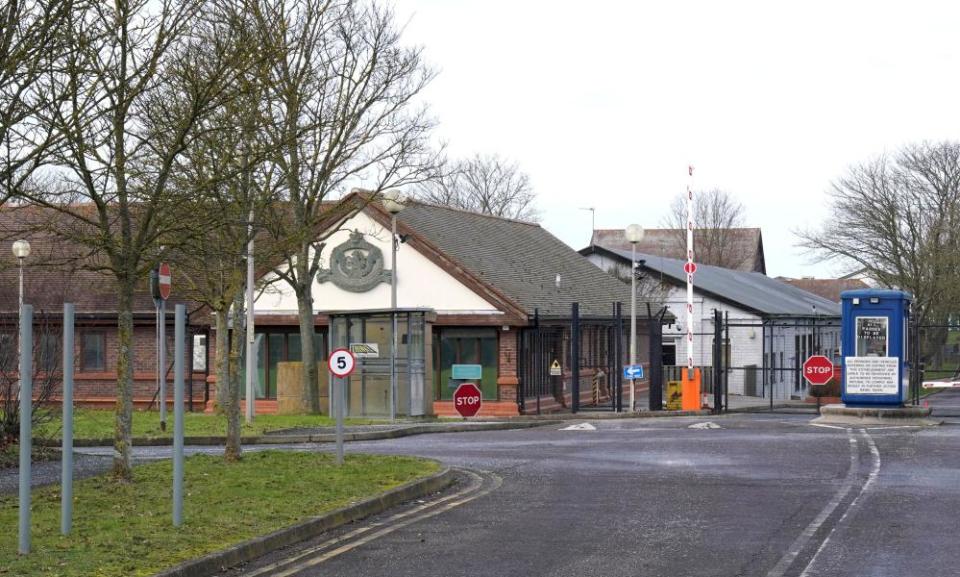UK asylum seekers with diphtheria symptoms to be held in ‘isolation hotels’

Asylum seekers showing diphtheria symptoms will be held in “secure isolation hotels” similar to those used during the Covid pandemic, the immigration minister has said.
Robert Jenrick said anyone displaying signs of the highly contagious disease would not be allowed to leave Manston processing centre in Kent except to be moved to a designated isolation centre.
The development comes after a report by the UK Health Security Agency confirmed the Guardian’s disclosure of there being 50 identified cases of diphtheria linked to Manston as of 25 November.
The home secretary, Suella Braverman, has been criticised for overcrowding leading to outbreaks of disease at Manston, and the Home Office said a man held there may have died from a diphtheria infection.
Jenrick told MPs that the rise in cases linked to the Kent site had led to the use of Covid-style isolation hotels. “From today, no one presenting with symptoms will progress into the asylum accommodation system. They will either remain at Manston, isolating for a short period, or they will travel to a designated isolation centre in secure transport where they will be treated until deemed medically fit,” he said.
The decision follows widespread concern that the government has possibly spread diphtheria to other hotels. The latest UKHSA report said 38 of the cases had been reported in the south-east. No breakdown by county has been provided.
Last year there were 10 cases in the UK, and this year until the end of September there had been one case. However, in October there were 18 cases and in November there were 27, a total of 49 cases.
Those affected are all male, mostly aged between 14 and 25, although one case involves a two-year-old child.
According to the report, two severe cases of the respiratory form of the infection required hospital treatment. The presence of diphtheria in the person who fell ill at Manston and later died in hospital was identified by a PCR test from a throat swab.
Diana Johnson, the chair of the home affairs select committee, said the insanitary conditions in Manston, where thousands of people were held for weeks on end, meant that the home secretary had potentially broken the law and could be liable for compensation claims.
She asked: “What does the initial compensation amount look like for those who were held?”
Jenrick replied: “I am not going to get into discussing the legal advice we have received.”
The shadow home secretary, Yvette Cooper, called on the Home Office to get a grip on the situation and accused the government of ignoring health advice as she criticised Braverman for her absence from the chamber.
The Home Office is rolling out a vaccination programme for newly arrived asylum seekers but it is not known how many people have been vaccinated so far. All people arriving in the UK by small boats are being offered a vaccine on arrival in the UK.
Ministers and health officials have said the risk of the public getting diphtheria is very low and infections are rare. The illness, which affects the nose, throat and sometimes skin, can be fatal if not treated quickly but antibiotics and other medicines are available.
A diphtheria vaccine was introduced in the UK in 1942, which led to a dramatic fall in cases. Before that, the average number of cases each year was 60,000, with 4,000 deaths.

 Yahoo News
Yahoo News 